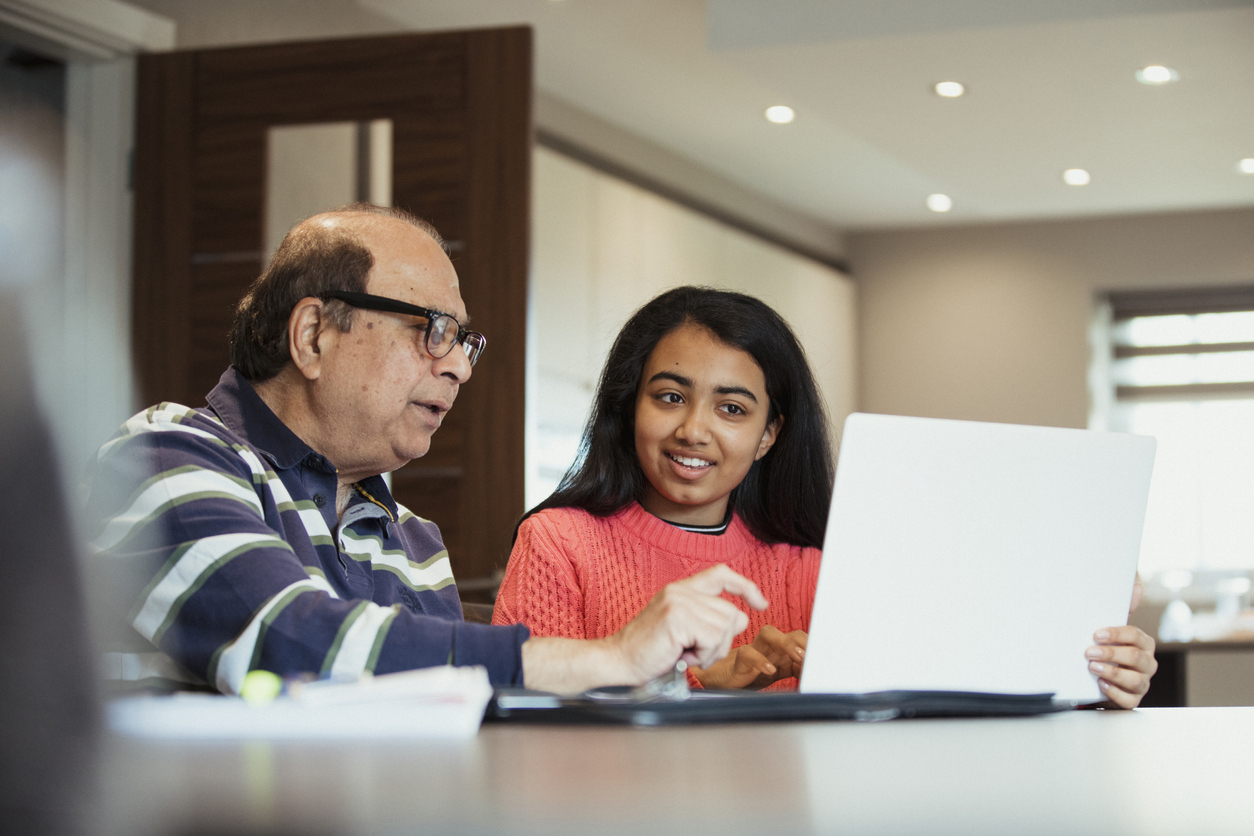- Thursday, April 25, 2024

By: Nadeem Badshah
Broadband suppliers urged to provide flexible tariffs during pandemic
ASIAN families are more likely to struggle to pay their broadband bill compared to other groups, a report found.
It has led to calls for better flexible tariffs to support hard-pressed families during the Covid pandemic and tackle the “digital divide”. Research by communications watchdog Ofcom said 29 per cent of Asian households are “more likely than average to experience an affordability issue” with their internet costs.
The figure was 31 per cent for the black community. The study also found households where someone who has a disability, those with at least one child and younger people said they found it difficult to afford the cost of broadband.
Ernest Doku, telecoms expert at price comparison website Uswitch.com, said reliable broadband has become even more vital for homes over the past year with people working from home, home schooling or having to keep businesses running.
She told Eastern Eye: “It’s disappointing to still see signs of a digital divide – with some households left struggling to pay their bills and not getting the full support that they need from providers.
“Moves by some broadband suppliers to offer cheaper bundles, for example those on Universal Credit, are a welcome step towards making an essential service like broadband affordable for all.
“It would be a leap in the right direction if more providers offered these types of tariffs, but, equally, there needs to be a greater effort from providers, such as BT and Virgin Media, to highlight their ‘essential’ packages as an option to those who need it most.
“If you are struggling to pay your bills, speak to your provider as soon as possible as they may be able to help you.” Since December 2020, around two million households have struggled with their broadband or mobile phone bill.
The report, published in July, called for telecoms firms to offer more support for households at risk of money problems and offer targeted deals.
Ofcom said it has seen some progress in the number of targeted tariffs being offered, with six providers offering at least one bundle priced at £10, £15 or £20 a month. Jaffer Kapasi, from the East Midlands Chamber of Commerce, believes there is a huge digital divide in the UK.
He told Eastern Eye: “It is estimated hundreds of children live in households with only a mobile internet connection and thousands of premises could not access either a decent fixed broadband service or good 4G coverage indoors.
“More worryingly, it has been found that if households were paying the average £37 a month for landline and broadband, they are not aware of cheaper packages like Tesco mobile.
“Within the family, it has been established that the young generation dominate the usage, leaving adults without or totally dependent on their children.
“5G is expected to support fast download speeds and near instant response times, with the capacity to support many devices operating at the same time. But there seems to be no fixed deadline [for whole UK coverage].”
Kishan Devani BEM, vice chairman of the Lib Dems in Business group, said: “This is yet another area and issue in which ethnic minority communities are disproportionately being affected by.
“The report calls for some form of targeted tariffs, something needs to be done, as once again it is minority communities and socio-economically disadvantaged families and communities that are being significantly disadvantaged.
“This is unacceptable and must be looked at immediately. This will inevitably have a knock-on effect for families and parents home schooling their children too, something which is wholly unacceptable in 2021 Britain.”
Meanwhile, millions of people in rural England will get access to the fastest broadband speeds as part of a £5 billion plan to level up internet access, the government announced in August.
Up to 1,850,000 further premises across 26 English counties will get access to gigabit speed internet of 1,000 megabits per second. It brings the total number of premises in scope for government-funded coverage to 2.2 million with more still to be announced over the coming months.
The government said it remains on track to hit its target of achieving at least 85 per cent gigabit-capable UK coverage by 2025.
Steve Barclay, chief secretary to the Treasury, said: “The pandemic has seen more services offered online and more businesses and consumers wanting to use online services, in particular from home.
“This announcement enabling over two million homes to have the fastest internet services will make a real difference to those businesses and consumers wanting to maximise the benefits of digital services.”